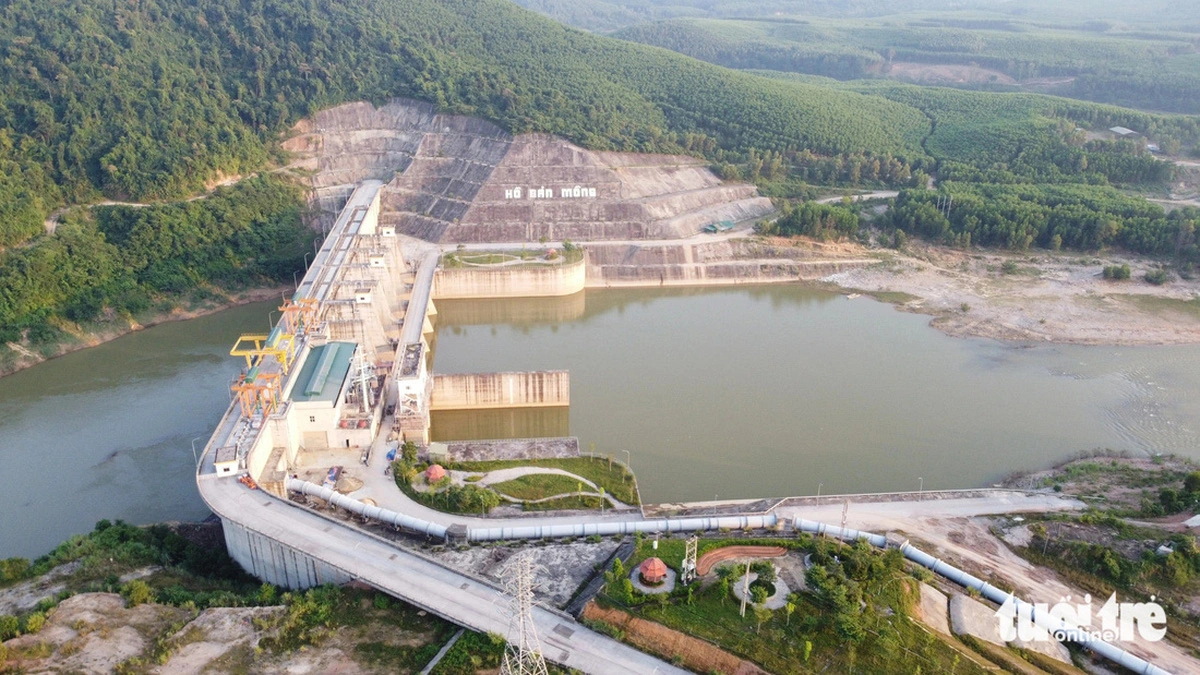Eliminating wastefulness -- especially the waste of opportunities -- is crucial for the survival and growth of Vietnamese provinces and the nation as a whole.
Missed opportunities are everywhere in Vietnam, each a reminder of what could have been. If seized, these chances might have paved the way for a brighter future.
As a country, Vietnam must focus on making sacrficies for new opportunities, otherwise it risks falling into the middle-income trap.
The Ban Mong reservoir project in Nghe An Province, located in the north-central region, is a typical case of wastefulness.
After 14 years of sluggish progress, the project has not only stalled but it has also led to significant state budget losses, with a cost overrun of over VND1.8 trillion (US$70.8 million).
Police have prosecuted those involved in the project, which could have been the largest irrigation project in Nghe An, boasting a capacity of 225 cubic meters of water.
Once finished, it is expected to serve nearly 20,000 hectares of agricultural land in Quy Hop, Nghia Dan, and Tan Ky Districts, Thai Hoa Town, and three communes in Anh Son District.
It will also supply water to the Ca River in the drought season at a speed of 23 cubic meters of water per second, and reduce floods during the rainy season.
Beyond the over-VND1.8-trillion cost overrun, the project's prolonged delays have severely impacted local households.
Many had hoped to use water from the reservoir to irrigate 20,000 hectares of farmland in the area, only to face continued setbacks.
While the cost overrun is a blow to the state budget, it is the loss of opportunities and livelihoods for local residents that is the real shame.
Had the project been completed on time, thousands of people could have relied on their farmland for a stable livelihood. Families would have had more resources to invest in their children’s education, paving the way for brighter futures and nurturing talents that could have significantly contributed to the nation’s development.
Opportunities like these must not be allowed to slip by if the country is to move from 'developing' to 'developed.'
Tackling such wastefulness is a top priority of Party General Secretary To Lam, who has suggested effective solutions for creating widespread impact.
These solutions include a stronger focus on improving and effectively implementing wastefulness prevention and control regulations, as well as strictly handling individuals and units which cause losses or waste of public assets.
Efforts to identify and address major violations must be strengthened, with violators held accountable as examples to deter others.
The Party chief also emphasized the need to tackle the root causes of wasteful use of public assets, natural resources, and funds designated for the welfare of the people and national development.
He required resolutions for long-stalled key national projects, low-efficiency projects causing significant waste and loss, and poor-performing commercial banks.
An important task, he said, is to scale down the apparatus of the Party, the National Assembly, the government, the Fatherland Front, and socio-political organizations for greater efficiency.
He advocated for fostering a culture of waste prevention and control within agencies and organizations, making it a routine part of their daily activities.
Like us on Facebook or follow us on Twitter to get the latest news about Vietnam!



















































